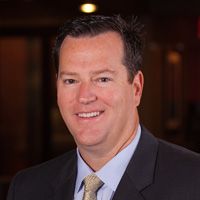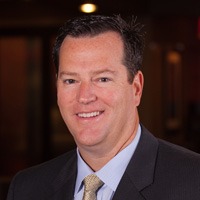Look Before You Leap Into a Taxing Withdrawal Strategy
Before you decide to turn on your Social Security, pension or some other income stream in retirement, consider the big picture. You have some control over the taxes you’ll pay in the future if you plan it right now.


Profit and prosper with the best of Kiplinger's advice on investing, taxes, retirement, personal finance and much more. Delivered daily. Enter your email in the box and click Sign Me Up.
You are now subscribed
Your newsletter sign-up was successful
Want to add more newsletters?

Delivered daily
Kiplinger Today
Profit and prosper with the best of Kiplinger's advice on investing, taxes, retirement, personal finance and much more delivered daily. Smart money moves start here.

Sent five days a week
Kiplinger A Step Ahead
Get practical help to make better financial decisions in your everyday life, from spending to savings on top deals.

Delivered daily
Kiplinger Closing Bell
Get today's biggest financial and investing headlines delivered to your inbox every day the U.S. stock market is open.

Sent twice a week
Kiplinger Adviser Intel
Financial pros across the country share best practices and fresh tactics to preserve and grow your wealth.

Delivered weekly
Kiplinger Tax Tips
Trim your federal and state tax bills with practical tax-planning and tax-cutting strategies.

Sent twice a week
Kiplinger Retirement Tips
Your twice-a-week guide to planning and enjoying a financially secure and richly rewarding retirement

Sent bimonthly.
Kiplinger Adviser Angle
Insights for advisers, wealth managers and other financial professionals.

Sent twice a week
Kiplinger Investing Weekly
Your twice-a-week roundup of promising stocks, funds, companies and industries you should consider, ones you should avoid, and why.

Sent weekly for six weeks
Kiplinger Invest for Retirement
Your step-by-step six-part series on how to invest for retirement, from devising a successful strategy to exactly which investments to choose.
Life is unpredictable enough before retirement, but once your regular paycheck goes away for good, it can feel downright dicey.
So you can’t really blame people for wanting to be sure the income streams that will replace that paycheck are all turned on and ready to go on their very first day off the job. They diligently do the paperwork to claim their Social Security benefits, their employer pension and anything else they have coming that will pay them consistently. Having all those boxes checked as soon as possible gives them the feeling that everything will be OK.
Unfortunately for many, it’s likely the opposite. Turning on those income streams too early could increase their lifetime tax bite and decrease their portfolio’s longevity.
From just $107.88 $24.99 for Kiplinger Personal Finance
Become a smarter, better informed investor. Subscribe from just $107.88 $24.99, plus get up to 4 Special Issues

Sign up for Kiplinger’s Free Newsletters
Profit and prosper with the best of expert advice on investing, taxes, retirement, personal finance and more - straight to your e-mail.
Profit and prosper with the best of expert advice - straight to your e-mail.
Instead, I tell pre-retirees to pause and look at all their sources of income, and to think about their withdrawal strategy from a tax standpoint as well.
Take control of your tax fate
Remember, once your paycheck goes away, you’re working with a clean slate when it comes to income taxes. You have control over your financial fate. And it might make more sense to delay those Social Security and pension payments – letting that money grow – while you draw from other holdings. You could pull from company stock options, for example, or get rid of some tax-inefficient assets. Or you could start pulling money from your tax-deferred accounts, which will help you later, when you turn 70½ and the IRS insists on collecting its share of your tax-deferred savings through required minimum distributions (RMDs).
Tax-deferred retirement plans have the great benefit of allowing you to leverage money for growth that otherwise would go to the government up front. But it’s important to understand the path you’re on when you invest in a plan like a 401(k) or 403(b). You could be deferring yourself into quite a mess, creating tax ramifications down the road.
RMD amounts are based on age and account value. And if that annual distribution is high enough, it could throw you into a higher tax bracket, which can raise the amount of taxes you’ll pay on your Social Security benefit (up to 85% of your benefit can be taxable) and even affect your Medicare premiums. It makes sense to lower the amount of money in your qualified retirement accounts (those funded with pretax money) before that happens.
You have 10 critical years to execute your plan
I call the years from age 60 to 70 the “golden decade,” because that’s when you have the most control over your tax situation. You can do the advanced planning needed to limit the IRS’ impact on your retirement plans.
But once you turn on certain income streams, it can be difficult to turn them off. If you take Social Security and change your mind, you have only 12 months to withdraw your claim. Of course, you can turn off (suspend) benefits any time after full retirement age, taking them out of your income stream and earning delayed retirement credits to age 70. Pension decisions, meanwhile, are typically irrevocable.
So, before you make those decisions, why not do a trial run to see what withdrawal strategies would work best for you? Maybe a Roth conversion is the way to go. Or a plan that makes the most of the low taxes on capital gains.
You might want to ask your tax preparer what it would cost to run a sample return to see what would happen if you didn’t have Social Security or a pension but used other assets for income instead. What would that look like? Or you could buy tax software and play around with the numbers yourself. Your accountant and financial adviser should be able to help, as well.
Of course, all of this is very nuanced. There isn’t a one-size-fits-all answer, and you should seek professional advice before making any final decisions.
It’s up to you to know the tax consequences of your investments and to be sure you get the breaks you deserve. But an astute adviser can help steer you the right way, with a withdrawal strategy that could make all the difference to your long-term financial future.
Kim Franke-Folstad contributed to this article.
Profit and prosper with the best of Kiplinger's advice on investing, taxes, retirement, personal finance and much more. Delivered daily. Enter your email in the box and click Sign Me Up.

Eric Peterson is a Registered Financial Consultant (RFC) and founder of the Peterson Financial Group. He is the author of "Preparing for the Back Nine of Life: A Boomer's Guide to Getting Retirement Ready."
-
 Quiz: Do You Know How to Avoid the "Medigap Trap?"
Quiz: Do You Know How to Avoid the "Medigap Trap?"Quiz Test your basic knowledge of the "Medigap Trap" in our quick quiz.
-
 5 Top Tax-Efficient Mutual Funds for Smarter Investing
5 Top Tax-Efficient Mutual Funds for Smarter InvestingMutual funds are many things, but "tax-friendly" usually isn't one of them. These are the exceptions.
-
 AI Sparks Existential Crisis for Software Stocks
AI Sparks Existential Crisis for Software StocksThe Kiplinger Letter Fears that SaaS subscription software could be rendered obsolete by artificial intelligence make investors jittery.
-
 Social Security Break-Even Math Is Helpful, But Don't Let It Dictate When You'll File
Social Security Break-Even Math Is Helpful, But Don't Let It Dictate When You'll FileYour Social Security break-even age tells you how long you'd need to live for delaying to pay off, but shouldn't be the sole basis for deciding when to claim.
-
 I'm an Opportunity Zone Pro: This Is How to Deliver Roth-Like Tax-Free Growth (Without Contribution Limits)
I'm an Opportunity Zone Pro: This Is How to Deliver Roth-Like Tax-Free Growth (Without Contribution Limits)Investors who combine Roth IRAs, the gold standard of tax-free savings, with qualified opportunity funds could enjoy decades of tax-free growth.
-
 One of the Most Powerful Wealth-Building Moves a Woman Can Make: A Midcareer Pivot
One of the Most Powerful Wealth-Building Moves a Woman Can Make: A Midcareer PivotIf it feels like you can't sustain what you're doing for the next 20 years, it's time for an honest look at what's draining you and what energizes you.
-
 I'm a Wealth Adviser Obsessed With Mahjong: Here Are 8 Ways It Can Teach Us How to Manage Our Money
I'm a Wealth Adviser Obsessed With Mahjong: Here Are 8 Ways It Can Teach Us How to Manage Our MoneyThis increasingly popular Chinese game can teach us not only how to help manage our money but also how important it is to connect with other people.
-
 Looking for a Financial Book That Won't Put Your Young Adult to Sleep? This One Makes 'Cents'
Looking for a Financial Book That Won't Put Your Young Adult to Sleep? This One Makes 'Cents'"Wealth Your Way" by Cosmo DeStefano offers a highly accessible guide for young adults and their parents on building wealth through simple, consistent habits.
-
 Global Uncertainty Has Investors Running Scared: This Is How Advisers Can Reassure Them
Global Uncertainty Has Investors Running Scared: This Is How Advisers Can Reassure ThemHow can advisers reassure clients nervous about their plans in an increasingly complex and rapidly changing world? This conversational framework provides the key.
-
 I'm a Real Estate Investing Pro: This Is How to Use 1031 Exchanges to Scale Up Your Real Estate Empire
I'm a Real Estate Investing Pro: This Is How to Use 1031 Exchanges to Scale Up Your Real Estate EmpireSmall rental properties can be excellent investments, but you can use 1031 exchanges to transition to commercial real estate for bigger wealth-building.
-
 Should You Jump on the Roth Conversion Bandwagon? A Financial Adviser Weighs In
Should You Jump on the Roth Conversion Bandwagon? A Financial Adviser Weighs InRoth conversions are all the rage, but what works well for one household can cause financial strain for another. This is what you should consider before moving ahead.